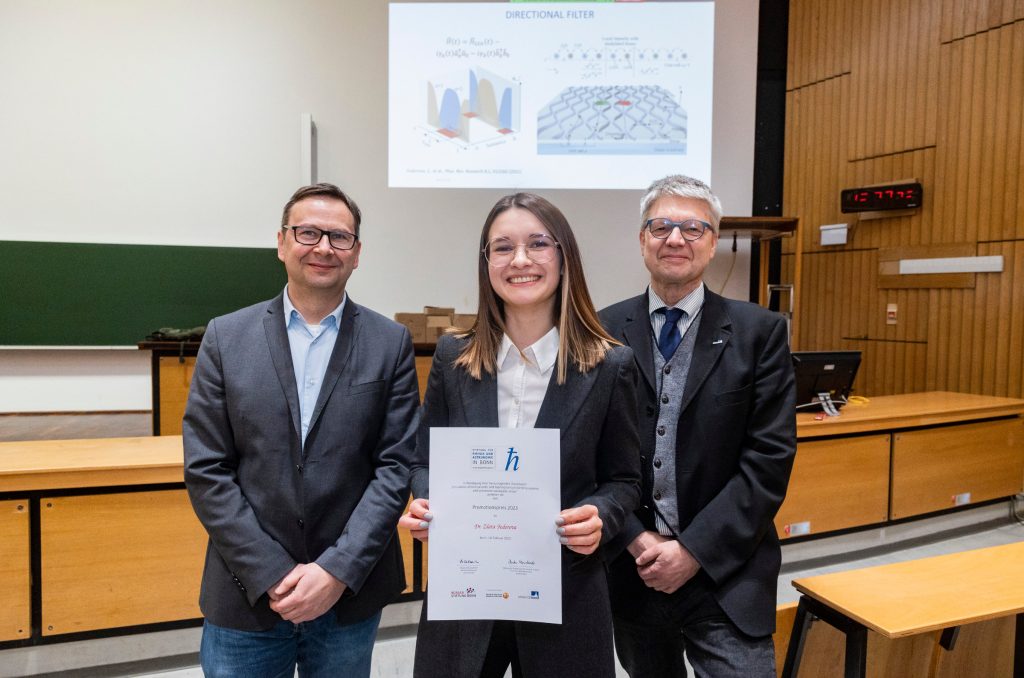Zlata Fedorova received her doctorate on the topic of “Simulation of time-periodic and topological tight-binding systems with plasmonic waveguide arrays” from Prof. Dr. Stefan Linden of the Nanophotonics Group at the Physics Institute of the University of Bonn. Periodic “shaking” – such as with a laser beam – can modify the properties of a quantum system.
“This technique, called Floquet driving, has become an important tool for manipulating ultracold atoms and electrons in crystals in recent years,” says Prof. Linden.
The basic idea is to mix states of the original system in a controlled way by periodically “shaking” them together to achieve novel properties. In her work, Zlata Fedorova investigated how Floquet forcing can control the topological properties and transport of light in optical waveguide structures.
“I am honored and excited to receive this award,” said Dr. Zlata Fedorova. “The award inspires me to work even harder for science. My deepest gratitude goes to my PhD advisor, Prof. Stefan Linden.”
Experimental realization of a fast quantum pump
Zlata’s work included the experimental realization of a fast quantum pump using Floquet forcing. The underlying concept goes back to a theoretical work by Nobel laureate David J. Thouless, in which he describes how a very slow modulation of a chain shifts a particle by exactly one lattice site in each period. In this case, one speaks of quantized transport. Experimentally, however, this concept is difficult to implement, because in “shaking” normally forward and backward states are coupled unintentionally and therefore the offset of the particle is not quantized.
“Zlata developed an innovative approach to solve this problem,” Linden reports. By appropriately varying the absorption along the waveguides in time and space, she was able to suppress the backward states without affecting the forward states. This allowed her to observe quantized transport of light along the waveguide structure in her optical experiments even at high modulation frequencies. Beyond the realization of a fast Thouless pump, this idea opens up a variety of possibilities for controlling transport properties in one-dimensional gratings.
Link to the German press release of the University of Bonn: https://www.uni-bonn.de/de/neues/020-2023
